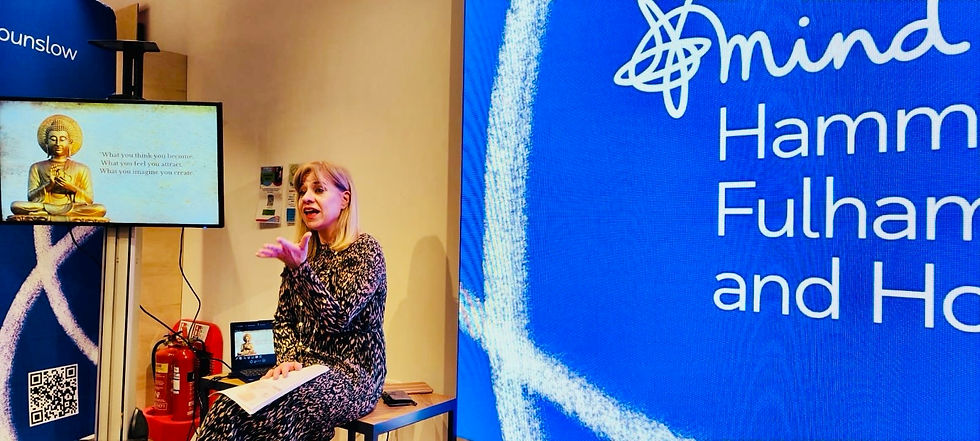Are you Listening to your Conscious or Subconscious Mind?
- lizapatoux
- May 27, 2020
- 3 min read
Updated: May 9, 2024

The Differences Between the Conscious and Subconscious Mind Our minds are made up of two complementing, but sometimes conflicting parts - the conscious and the subconscious. Although, as individuals, we are often more aware of the busyness of our conscious mind, in reality, our subconscious is hard at work behind the scenes assessing the environment and driving our involuntary functions. A popular analogy is that of a computer. If the conscious mind is what is displayed on the screen, the subconscious mind encompasses everything working in the background, from the hard drive to the information processor. The conscious mind is like the tip of the iceberg we are aware of, while the subconscious mind can be compared to the enormous mass that lies hidden beneath the water line. The conscious mind focuses on our present awareness, it evaluates information and makes judgements. It is not always our best friend, and doesn’t always reflect a true reality, even though it is the gatekeeper to our reasoning and logic, governing our choices, accepting or rejecting what fits our belief system, filtering what gets through. The subconscious mind, on the other hand, is the home of our emotions, beliefs and memories, running our involuntary actions such as breathing and responses to the environment. It is not analytical or judgemental and cannot distinguish between helpful and unhelpful suggestions, meaning the choices the conscious mind makes can impact its workings, our emotions and bodily functions, for better or for worse. If the conscious mind has limited capacity, being able to process around 40 stimuli at any one time, and taking up 5% of the mind's processing power, the subconscious mind is infinitely vaster. The latter processes around 20 million environmental stimuli per minute, involving 100,000 chemical reactions per body cell per second, processing 400 billion pieces of information every second. The conscious mind rules our voluntary actions and choices, both good and bad. Hypnosis creates a state where it is possible to quieten and bypass the conscious mind, talking to and placing suggestions for positive change directly in the subconscious mind, where our belief systems reside. The subconscious mind, with the right state created, will also process information on its own and when given he opportunity often deliver new insight. Working continuously around the clock to take in information, our subconscious mind assesses the actions needed and makes decisions for us without the conscious mind thinking about it. Billions and trillions of impulses, are interpreted and coordinated to assess measures such as weight, space, light, sound and temperature, while the cerebellum processes and calculates the adjustments needed to achieve smooth movements of the body, but this is all hidden from the conscious mind, as we enjoy the experience. As we learn new skills, habits and enjoy experiences, neural pathways become embedded in the subconscious. Our conscious mind, on the other hand will be activated in unexpected situations to assess if there is a threat factor, making sense finding solutions. The conscious mind has been described as one of the greatest achievements of human evolution, and still, in order to function at its best, it needs times of rest from its inner voice and gatekeeper role, so the subconscious can do its work, making sense of all the input from the super information highway that the miraculous computer of the mind processes every day.



